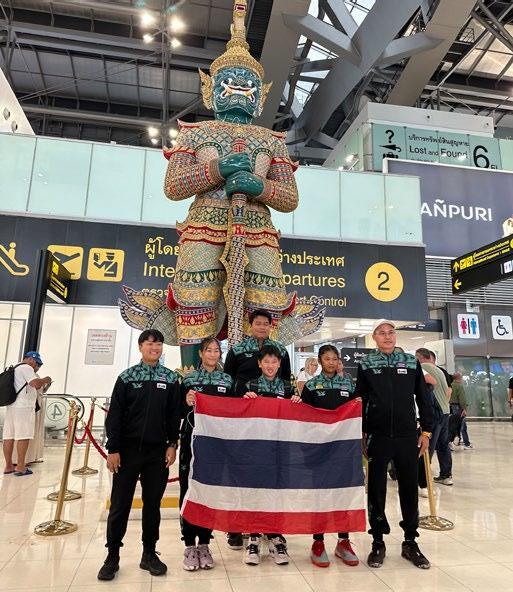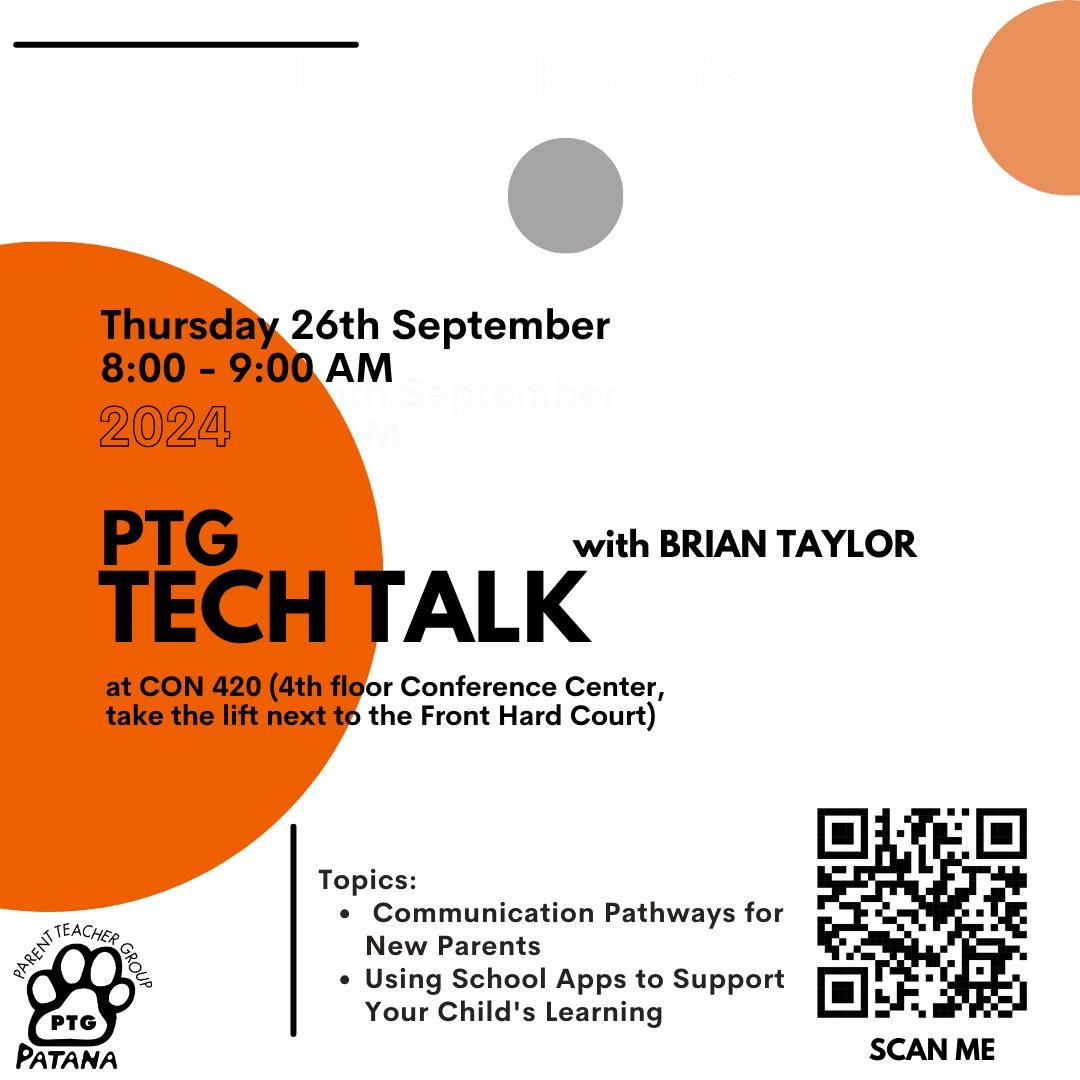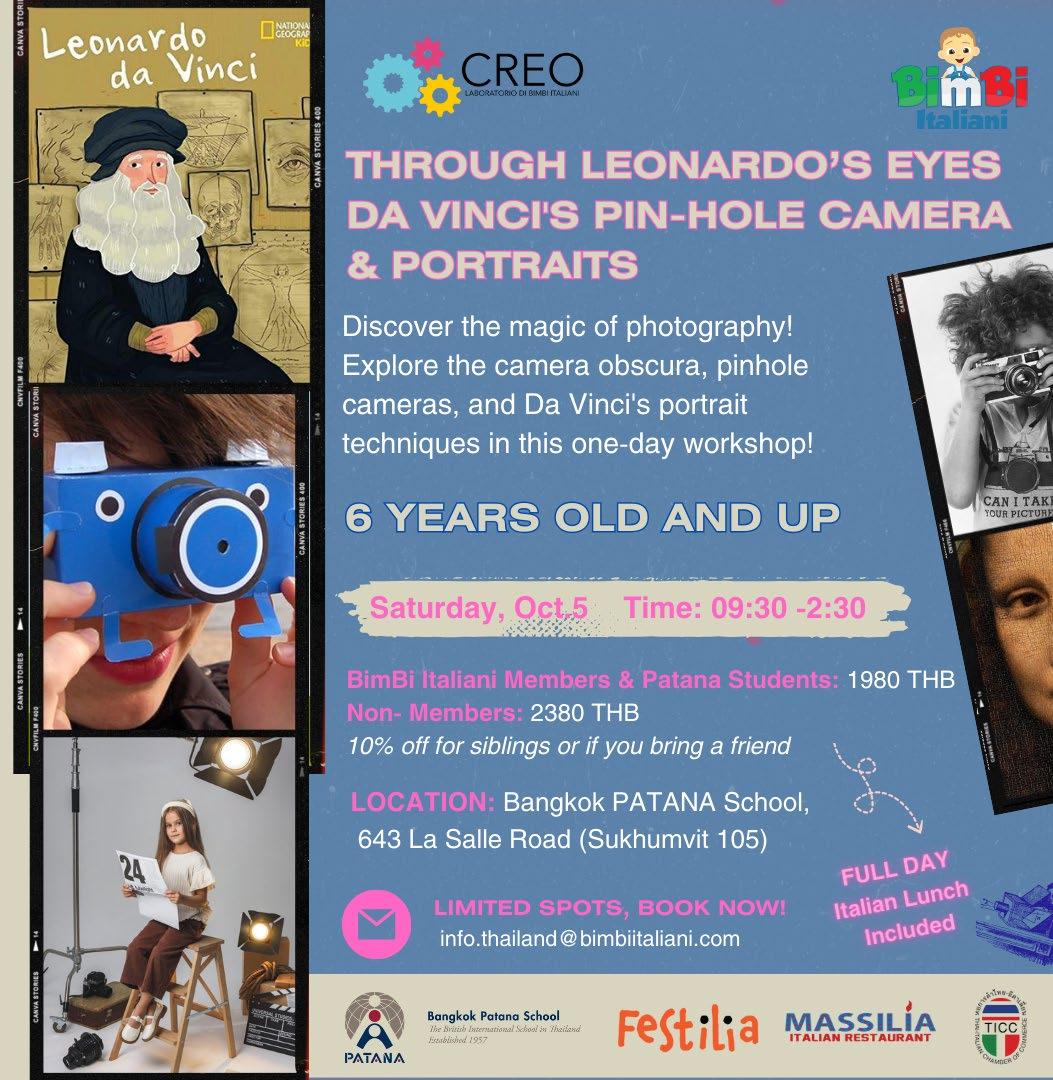
By Cindy AdAir




By Cindy AdAir


In today’s fast-paced and ever-evolving world, the importance of a holistic education cannot be overstated. As parents, educators and community members, we must recognise that the traditional approach of knowledge acquisition alone is no longer sufficient to equip our children for success. A well-rounded education, encompassing a broad range of extracurricular activities, access to world-class libraries, service opportunities, and community connections, is essential for fostering the soft skills and resilience necessary for the future job market and overall well-being.
Extra-curricular activities play a crucial role in a holistic education. They provide students with opportunities to explore their interests, develop new skills, and foster a sense of teamwork and leadership. Research has shown that students who participate in extra-curricular activities are more likely to exhibit higher levels of self-esteem, better time management skills, and improved academic perfor -
mance. Did you know Bangkok Patana offers over 500 different activities each week?
Studies reveal that students engaged in extra-curricular activities tend to have better attendance records and higher levels of academic achievement. These activities, whether they involve sports, music, drama, or outdoor education, teach students valuable life skills such as perseverance, communication, and problem-solving. As the renowned educator John Dewey once said, “Education is not preparation for life; education is life itself.”
A holistic education also includes access to world-class libraries, which serve as gateways to knowledge and intellectual growth. Libraries offer students a wealth of resources, from books and journals to digital media and research databases. They provide a conducive environment for self-directed learning, critical thinking, and intellectual curiosity. Bangkok Patana is lucky to have two wonderful
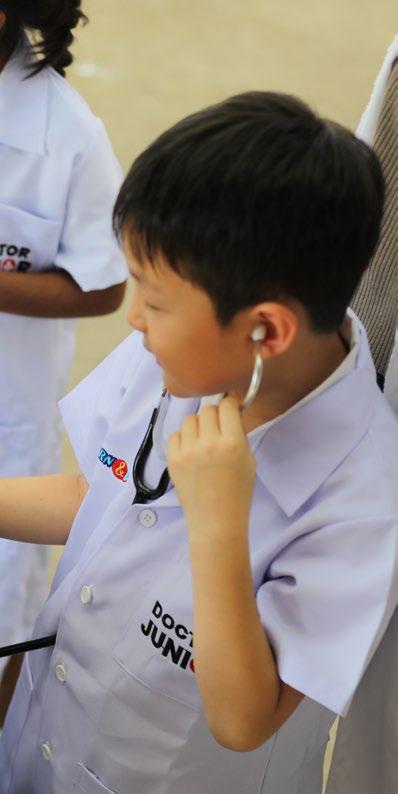
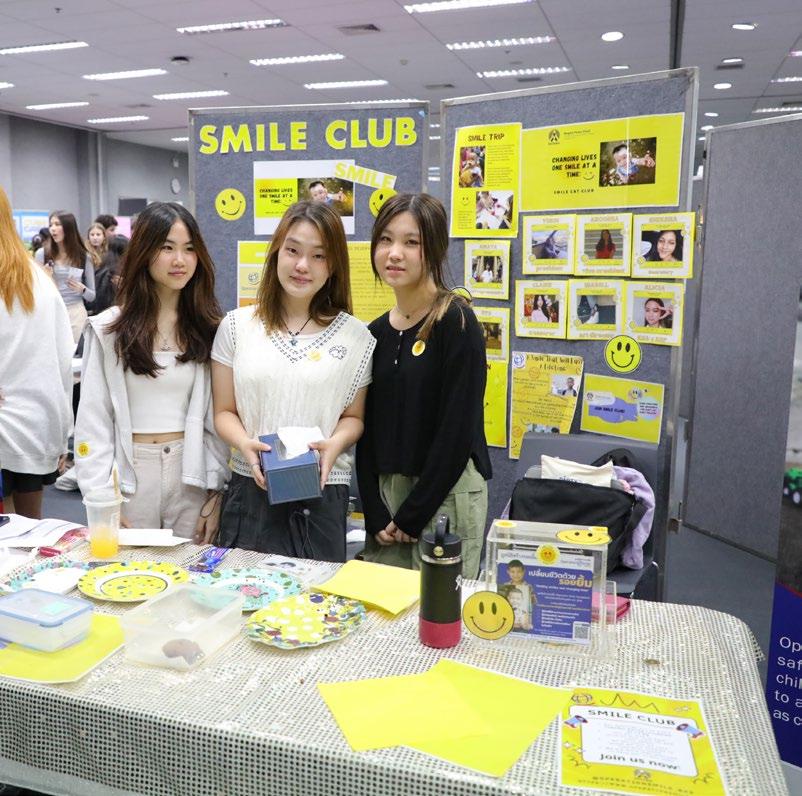
libraries with a collection of over 83,000 titles!
In his book The Library: A Fragile History, Andrew Pettegree emphasises the transformative power of libraries, stating, “The library is not just a collection of books, but a place where minds meet, ideas are exchanged, and knowledge is shared.” By exposing students to a diverse range of perspectives and ideas, libraries foster a love for learning that extends beyond the classroom.
Service opportunities are another integral component of a holistic education. Engaging in community service allows students to develop a sense of empathy, social responsibility, and civic engagement. These experiences help students understand the importance of giving back to society, protecting the planet and the impact they can have on their communities.
Service opportunities also provide a platform for students to apply classroom knowledge to real-world situa-
tions, fostering a deeper understanding of societal issues and the importance of social justice. Looking beyond Patana out into local, regional and global communities.
A strong community connection is vital for a holistic education. Schools that foster a sense of belonging and community involvement provide students with a supportive network of peers, mentors, and role models. These connections help students develop people skills, emotional intelligence, and a sense of identity. In an International School setting there is also a unique opportunity to grow intercultural understanding by embracing the language and culture of the country in which your school is based, in our case the Kingdom of Thailand. We can also celebrate the diverse and unique backgrounds of those families who make up our school community and learn from one another.
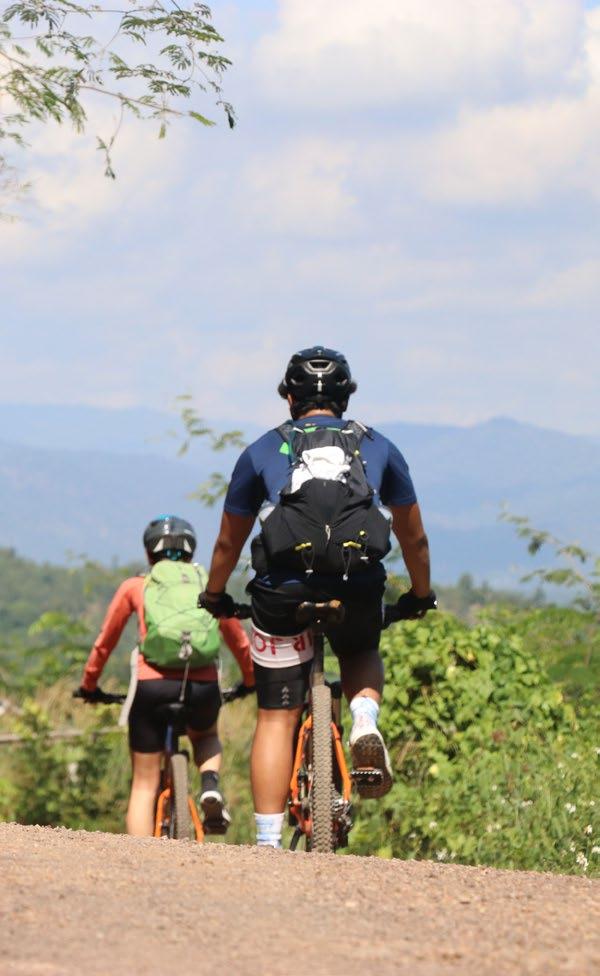
As the psychologist Urie Bronfenbrenner once noted, “Every child needs at least one adult who is irrationally crazy about him or her.” A supportive community not only enhances students’ academic success but also contributes to their social and emotional well-being. By building relationships, intercultural understanding and networks, students learn the importance of collaboration, respect, and mutual support.
In the rapidly changing job market, employers increasingly value soft skills such as communication, adaptability, and teamwork. A holistic education that integrates extracurricular activities, library access, service opportunities, and community connections equips students with these essential skills, making them more competitive in the workforce.
The World Economic Forum’s “Future of Jobs Report” highlights that by 2025, skills such as critical thinking, prob-

lem-solving, and emotional intelligence will be among the most sought-after by employers. A holistic education prepares students to navigate these demands by fostering creativity, resilience, and a growth mindset. As Brené Brown wisely states, “We need to teach our kids how to fail and get back up, how to be in relationships, and how to be vulnerable. This is the heart of a holistic education: preparing them for a full and brave life.”
Yuval Noah Harari, the esteemed historian and author of Sapiens, emphasises, “In an age of rapid technological change, the ability to re-invent oneself is crucial. Holistic education builds adaptable, lifelong learners, not just people who can pass exams.”

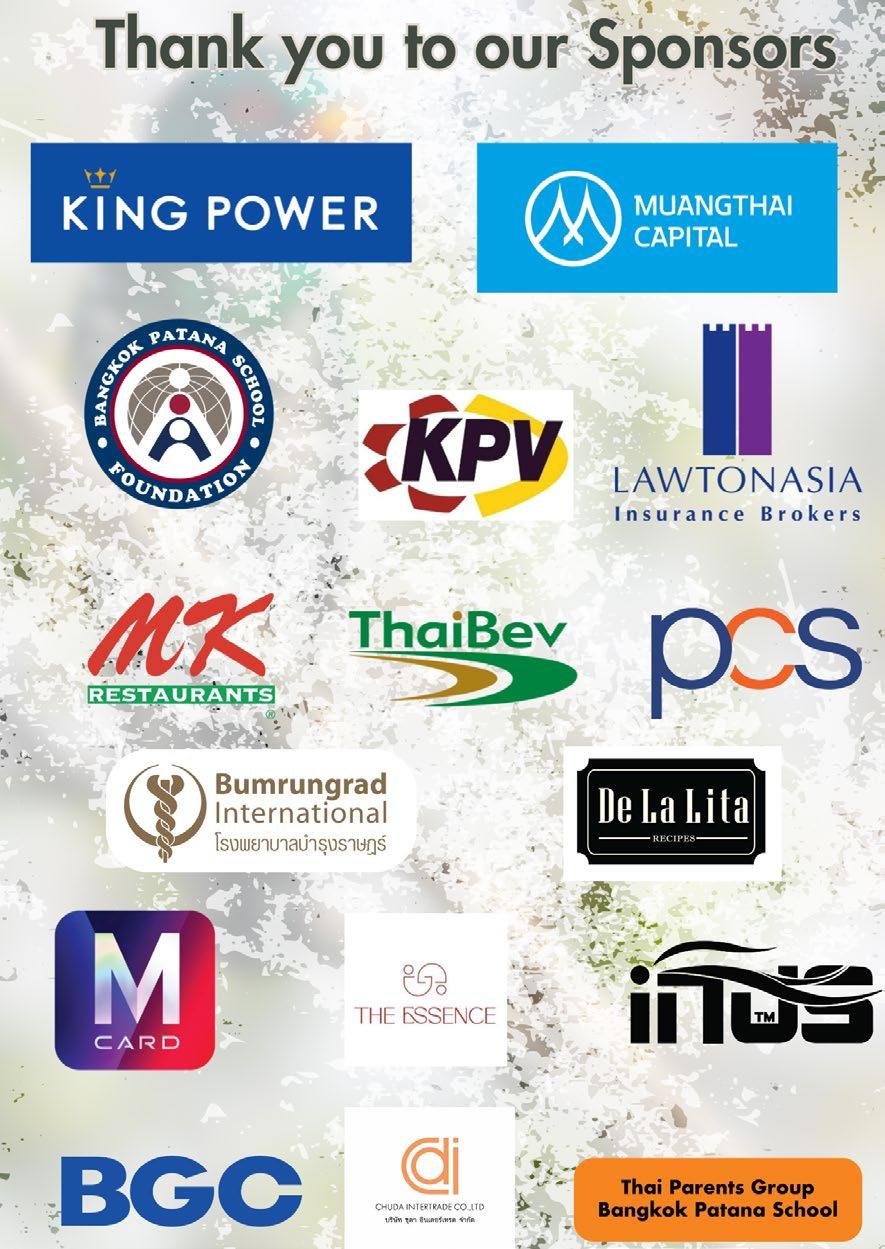
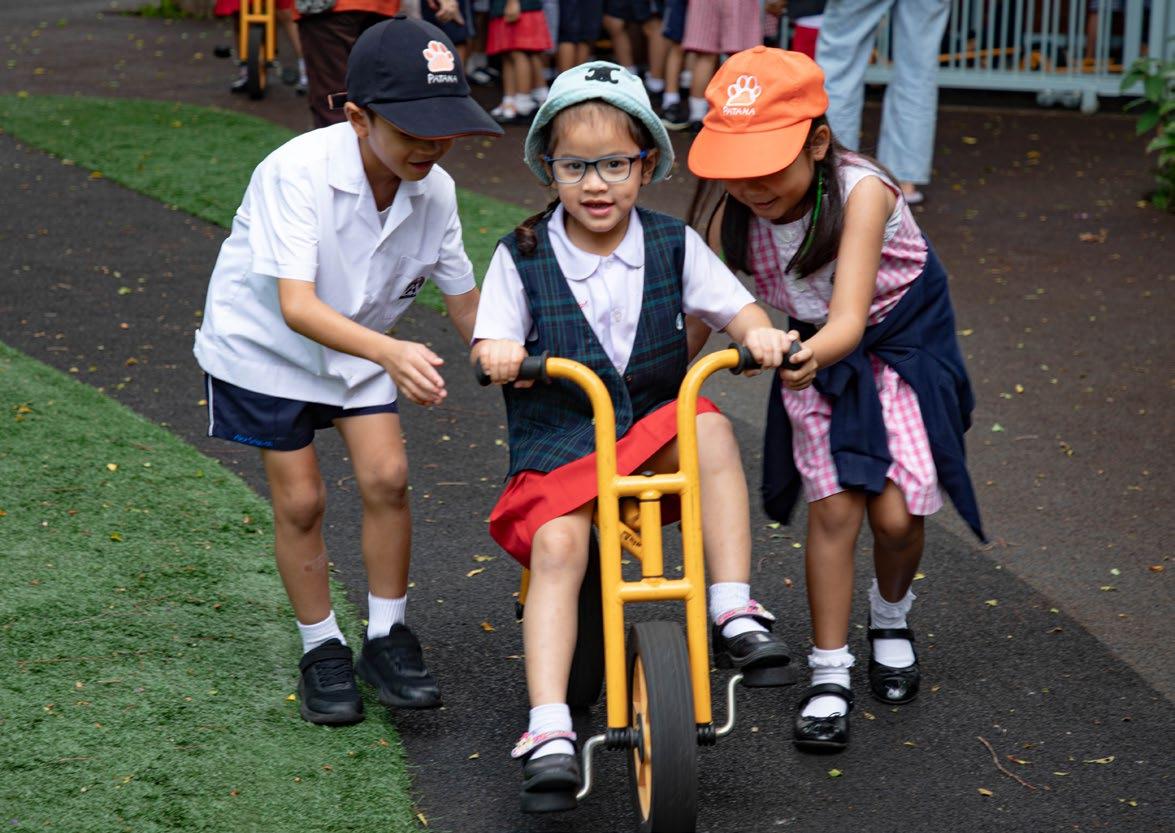
Robine Johnson, Lead Teacher for Community Action Team, Primary School
Urban Neighbours of Hope (UNoH) are a small, responsive neighbourhood-based team who live and serve the community in Khlong Toey, one of the poorest areas of Bangkok. They partner with a local Montessori Preschool, Grapongdeang, at the Khlong Toey Community Centre.
Year 1 have supported Urban Neighbours of Hope and the students of Grapongdeang School for over eight years through fundraising projects and giving books at Christmas.
Last Christmas, Year 1 parents helped to deliver new, Thai language books to the students of Grapongdeang School. In Term 2, Year 1 students invited the students of Grapongdeang School for a play date at our school. The Year 1 students learned first hand that although we come from different school campuses, we are the same in so many ways.
Year 1 donated money from the annual Spellathon for soft play equipment and an aircon unit in the Physical Development room. This area is vital to children growing up in cramped conditions with little access to space to run
and play.
In Term 3, we donated the money from our tote bag sale to replace the windows and doors in the older rooms on their campus and buy a solar powered water filter drinking fountain.
This year, we are looking forward to another full schedule of support for Grapongdeang School. We plan to help them install solar panels on their roof to reduce running costs and we are looking forward to welcoming them to Year 1 again later in the academic year.
If you would like to support UNoH please contact Lish Faulkner at alisha@unoh.org.
Also run by Urban Neighbours of Hope, Roy Rak is a fair-trade initiative that helps local women make beautiful, ornate jewellery. Roy Rak offers workshops, tours and even birthday party activities. They will be selling their products at the Community Market on Friday November1st. You can find out more about their mission here- www.royrak. org
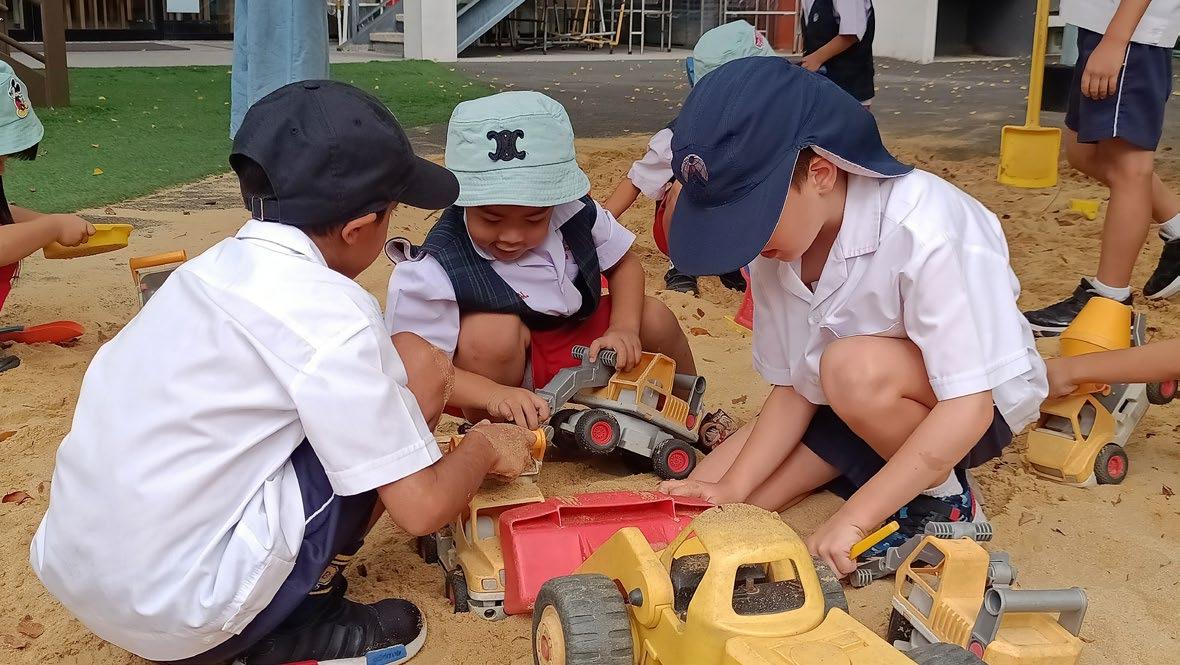
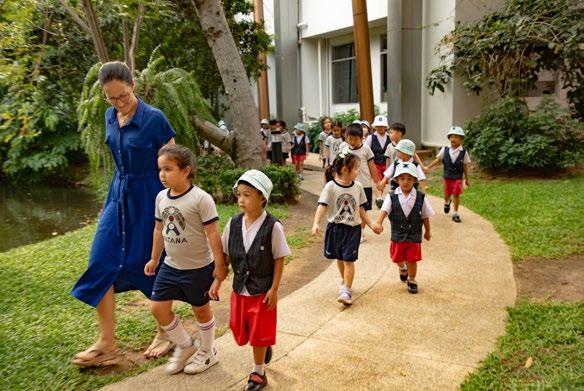
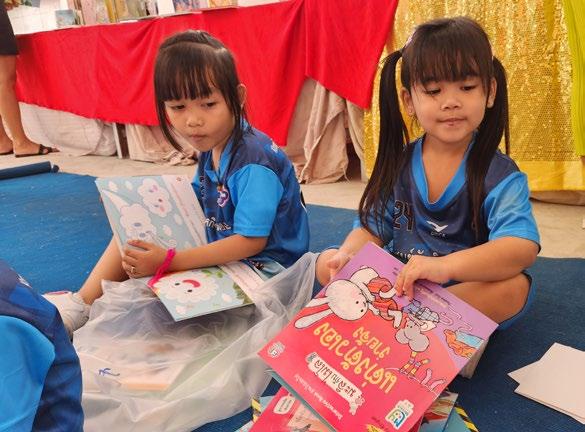
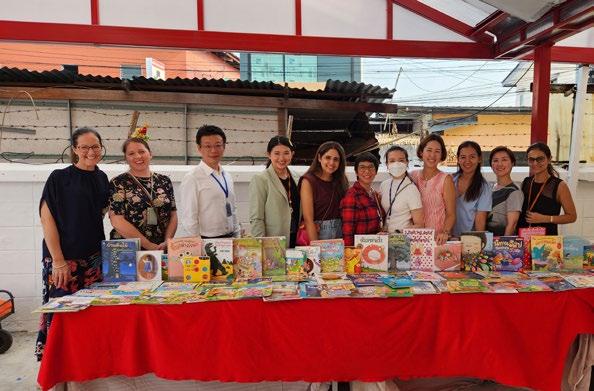


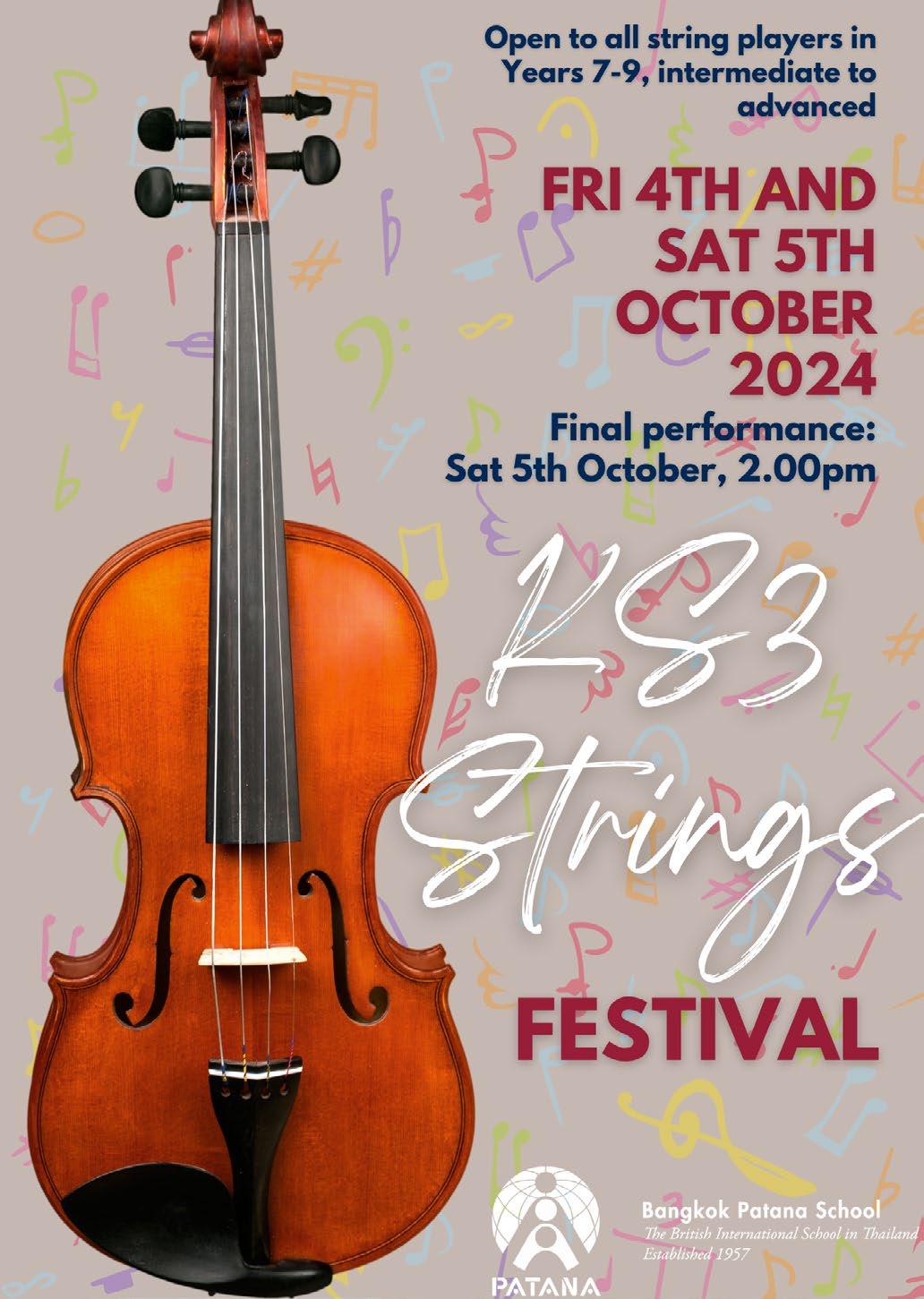
Ana Bolakoso, Student Voice Manager, Tiger Sports Council
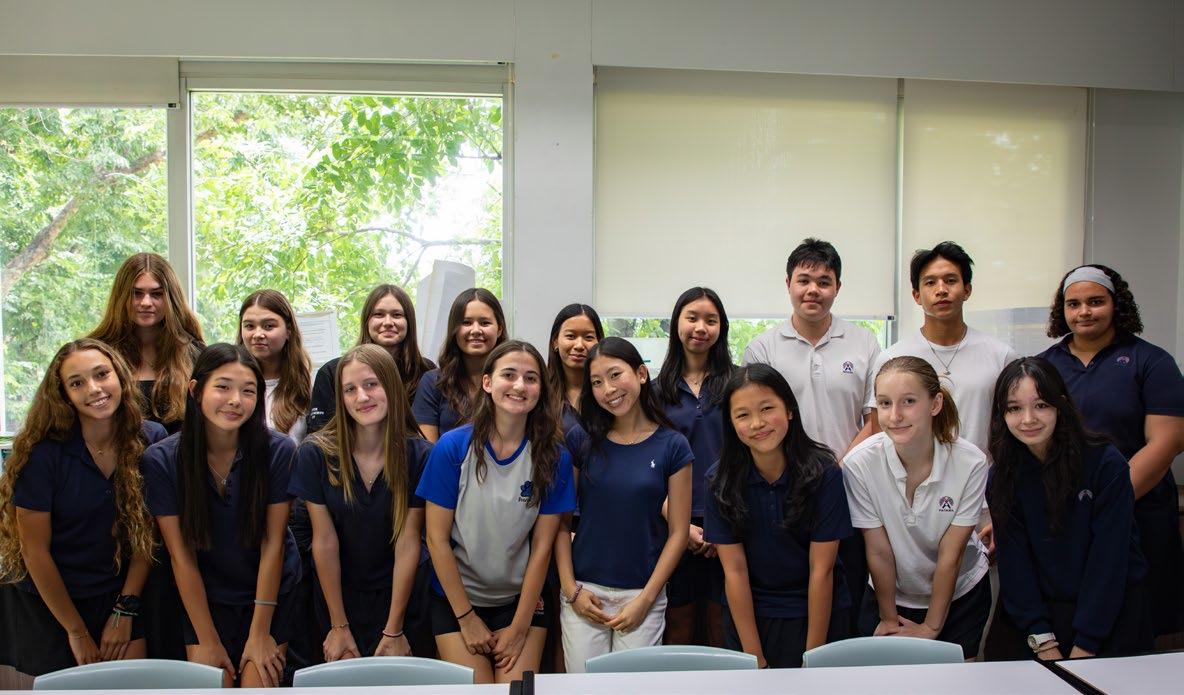
At the conclusion of last academic year, after reviewing numerous impressive applicants, we proudly selected several dedicated athletes to form this year’s Tiger Sports Council. With enthusiasm and true Tiger spirit, we look forward to organising exciting events, celebrating our team’s victories, and bringing even more of the thrilling Student vs. Teacher rivalry matches you love. Get ready for an action-packed year! Alongside our talented team, we are excited to introduce our six new leaders who are ready to guide the group throughout the year. We’re eager to represent our sports teams with pride and spirit. Go Tigers!
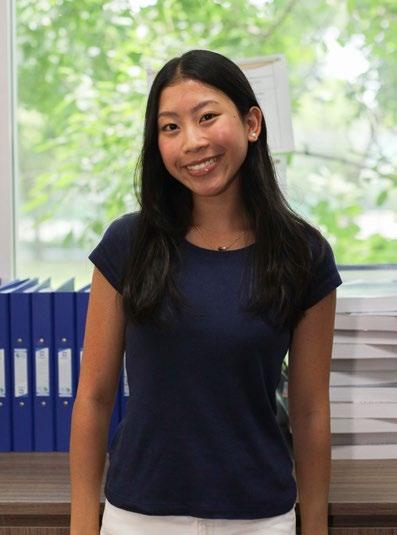
As Chair of the Sports Council, for the second year, I’m excited to continue playing a pivotal role in fostering a vibrant and inclusive sporting community within our school. I look forward to organising exciting sporting events, celebrating our athletes’ accomplishments, and bringing together our school community through a shared love of sports.

As Vice Chair and Manager of Interhouse Events, I aim to increase student involvement in sports by organising lunchtime events for all year groups and engaging as many participants as possible.
As the Social Media Manager, I am excited to bring awareness to all the sports that are played around secondary and be able to present them both aesthetically and in a way that all the information is relayed clearly.
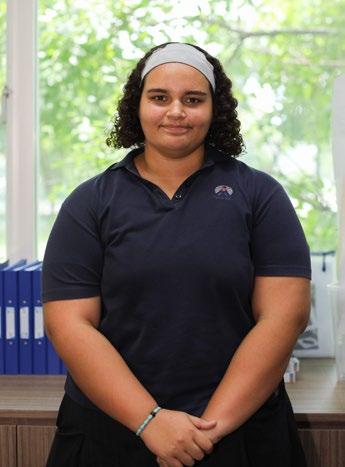

As Manager of Student Voice, I’m excited to document and celebrate the Tigers’ achievements throughout the year. We’ll recognise sporting events and feature articles that introduce you to our players and coaches, showcasing their stories and contributions. Let’s go!
As co-coordinators of student vs. teacher events, we’re thrilled to bring our school together for exciting competitions that showcase the spirited rivalry between students and teachers at Bangkok Patana.
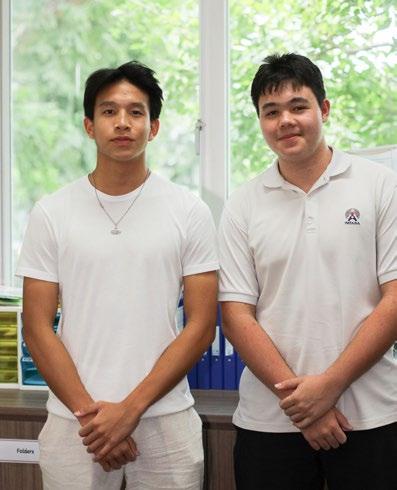
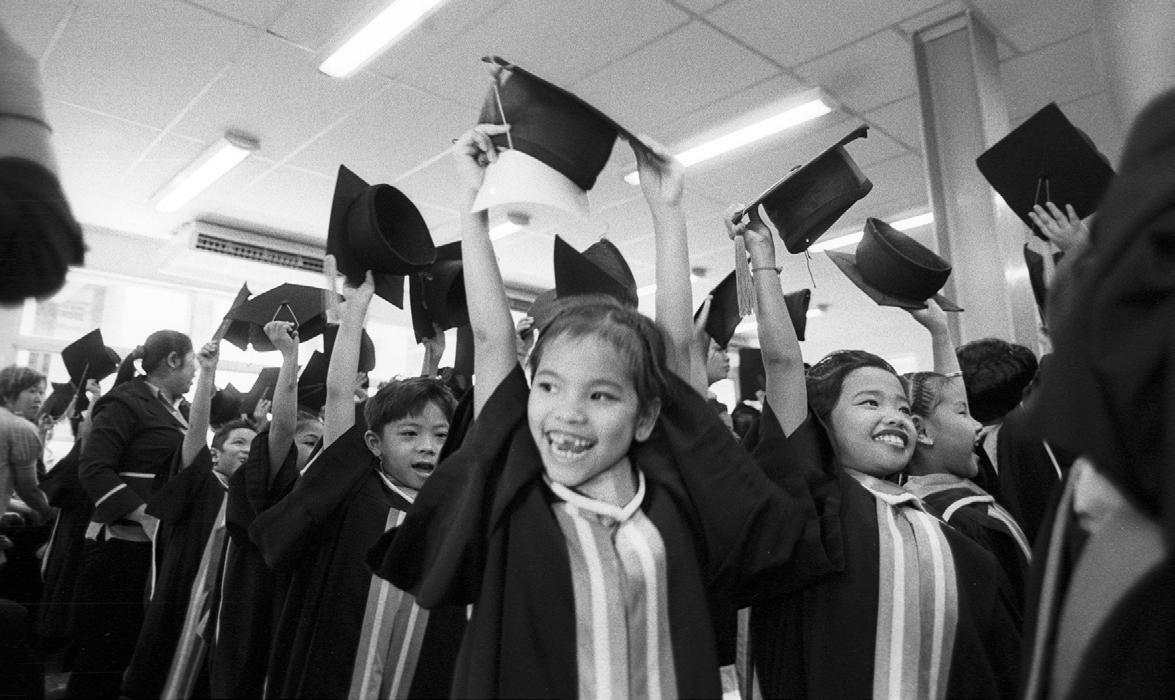

Year 4 are delighted to continue supporting two charities again this year: The Mercy Centre and The Good Shepherd Thailand.
Helping the children and communities of the many slums of Bangkok is the mission of this charity. They build and operate schools, improve family health and welfare, protect street children’s rights, respond to daily emergencies, and offer shelter to orphans and street children.
Following the huge success of the Young Entrepreneur markets in Term 3, the Year 4 children were able to donate THB150,000 to the Mercy Centre Preschool. This means that around 1,000 preschoolers will have a strong foundation for their educational journey. Our donation funded essential school supplies which enabled the Preschool teachers to

create engaging teaching materials and projects that enrich each day’s lessons. This project has the potential to make a lasting and positive impact on the lives of young children.
This Christmas, Year 4 children will again take part in the Christmas Box Project. This involves the students creating Christmas wrapping paper using recycled paper and filling shoeboxes with a variety of items needed by the Mercy Centre children. This includes essentials such as toiletries as well as small toys, colouring pencils, notebooks and teddies to fill the shoeboxes.
This organisation has many ongoing projects throughout the country. Here in Bangkok, they support women’s refuge and child care services in Din Dang. They provide learning opportunities for disadvantaged woman such as sewing, embroidery, crafting, hairdressing and manicure training. They also provide day care for young children aged 3-6 years.

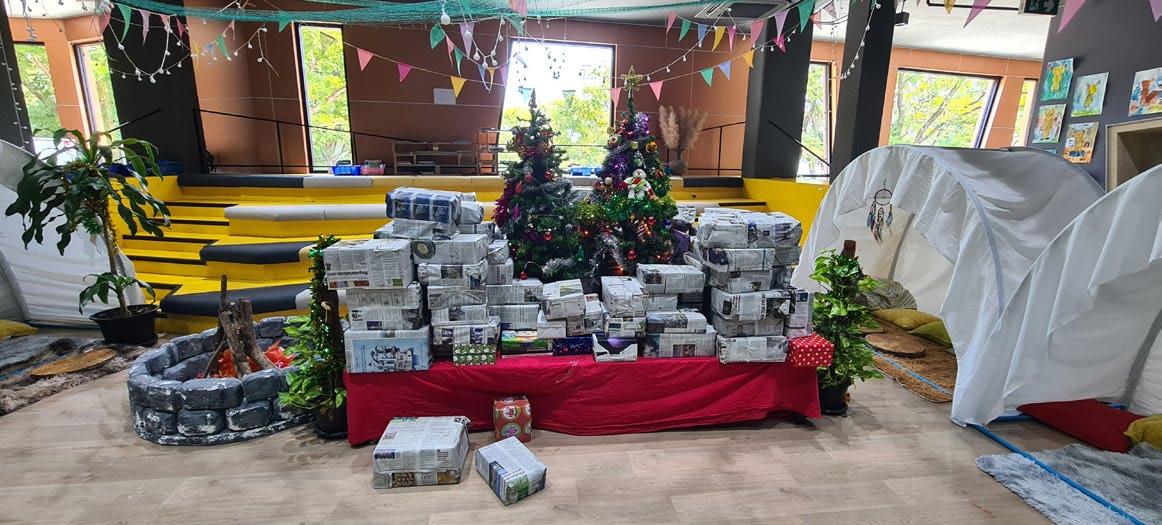
How do we help them?
Year 4 donated THB150,000 to The Fatima Centre to support the work that is done with women and children at risk in the community. We are looking forward to meeting Sister Louise at the Community Market on November 1st when she will be selling the craft products made by the women at the shelter.
You can find out more about these charities and what they do by following the links below.
https://www.mercycentre.org/new/ https://goodshepherdthailand.org/
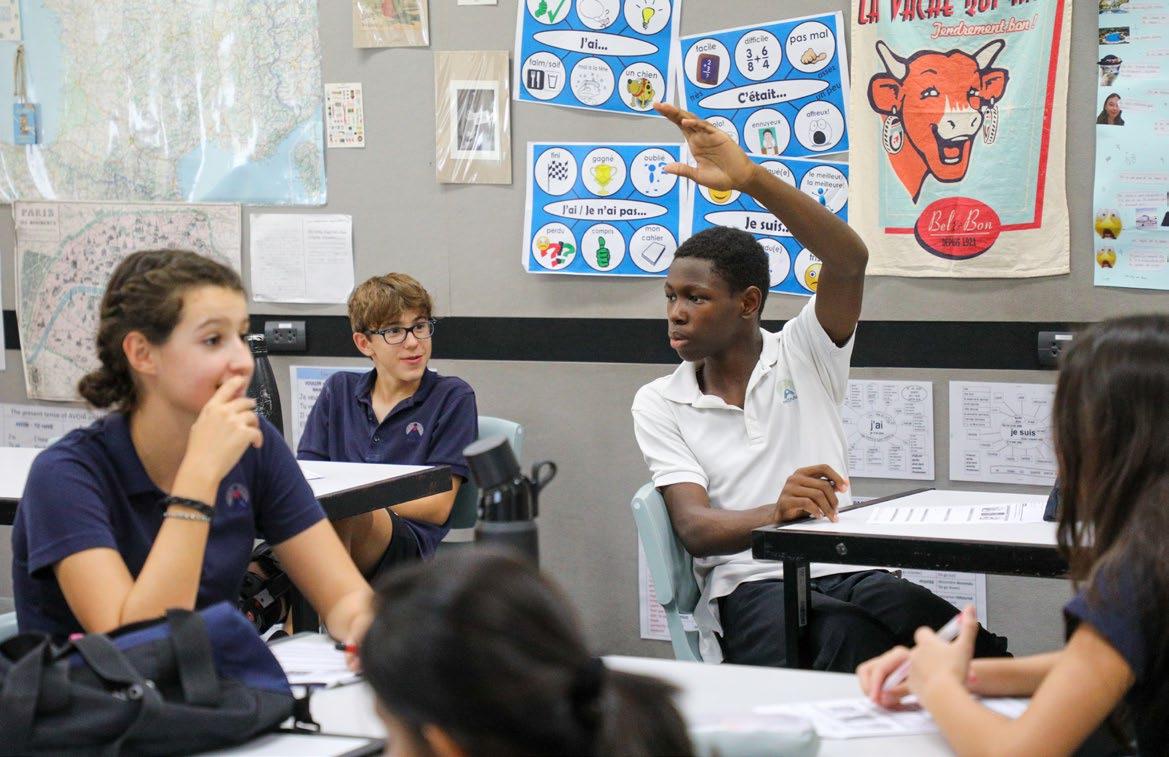
In June 2024, some Year 9 French students took a significant step in their French language journey by sitting the DELF A1 and A2 exams at the Alliance Française in Bangkok. This prestigious, globally recognised qualification, measures proficiency in French and is a valuable credential for both academic and professional pursuits.
The DELF (Diplôme d’Études en Langue Française) certifications are internationally accredited and valid for life, providing our students with a lasting credential that attests to their proficiency in French. These certifications open doors to a world of opportunities, whether for further education, travel, or career advancement. Students can include their DELF qualification in future university applications, and since language is all about communication and connection, and studying a new language brings people and cultures together, it is highly prized by university admission departments.
The dedication and hard work of both students and teachers have paid off, with many achieving commendable results. This accomplishment reflects our commitment to providing quality language education and the perse -
verance of our students. Congratulations to everyone involved for making this achievement possible!
“The preparation for the DELF was very good: we started practicing the different parts of the exam at the end of April and were given plenty of additional exercises to work on at home. This all helped me to know how the test layout would be like. This is helpful because I would be more comfortable during IGCSE as I am already familiar with how a proper French test will be taken. I’m sure this exam prepared me for Key Stage 4 and made me realise what I need to improve in order to succeed in my IGCSE.”
-Daniel Volgesanger
“The preparations for DELF that we did in school helped me know what the test layout would be like. Also, doing DELF helped me improve my French speaking and I am now more prepared for the IGCSE.”- Natalia (Nana) Suthiwongsunthorn.
Congratulations to these students for getting their DELF A2 qualification:
Remy Rittipan Hartayo
Maryam Limbada
Samiksha Mahesh
Arisa Wangwittaya
Arisyan Bagnuoli
Zi Xuan Guo
Leonor Hoppenbrouwers
Chenxi Hu
Eva Reuven
Ailsa Khamdee Rigby
Giorgia Romei
Natalia Suthiwongsunthorn
Daniel Vogelsanger
Maya Wawrzyniak
Congratulations to these students for receiving their DELF A1 qualificcation
Aarush Jhanwar
Nibiha Shahzad
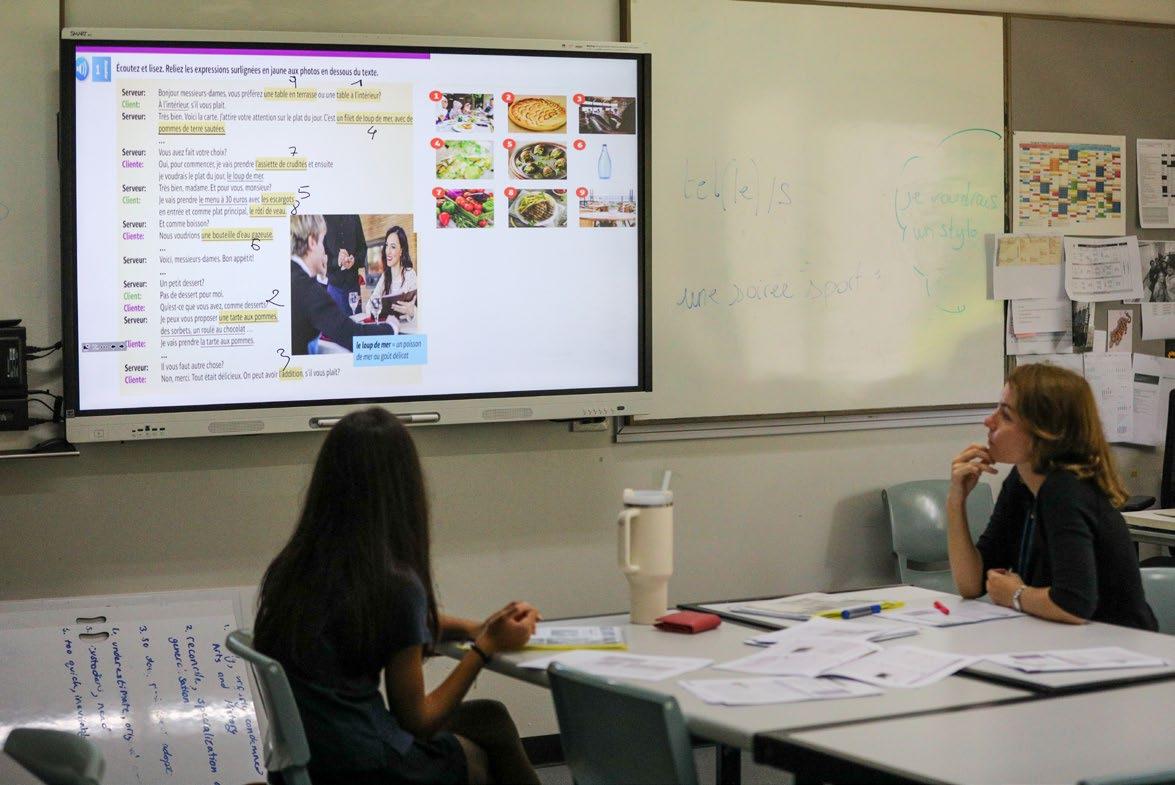
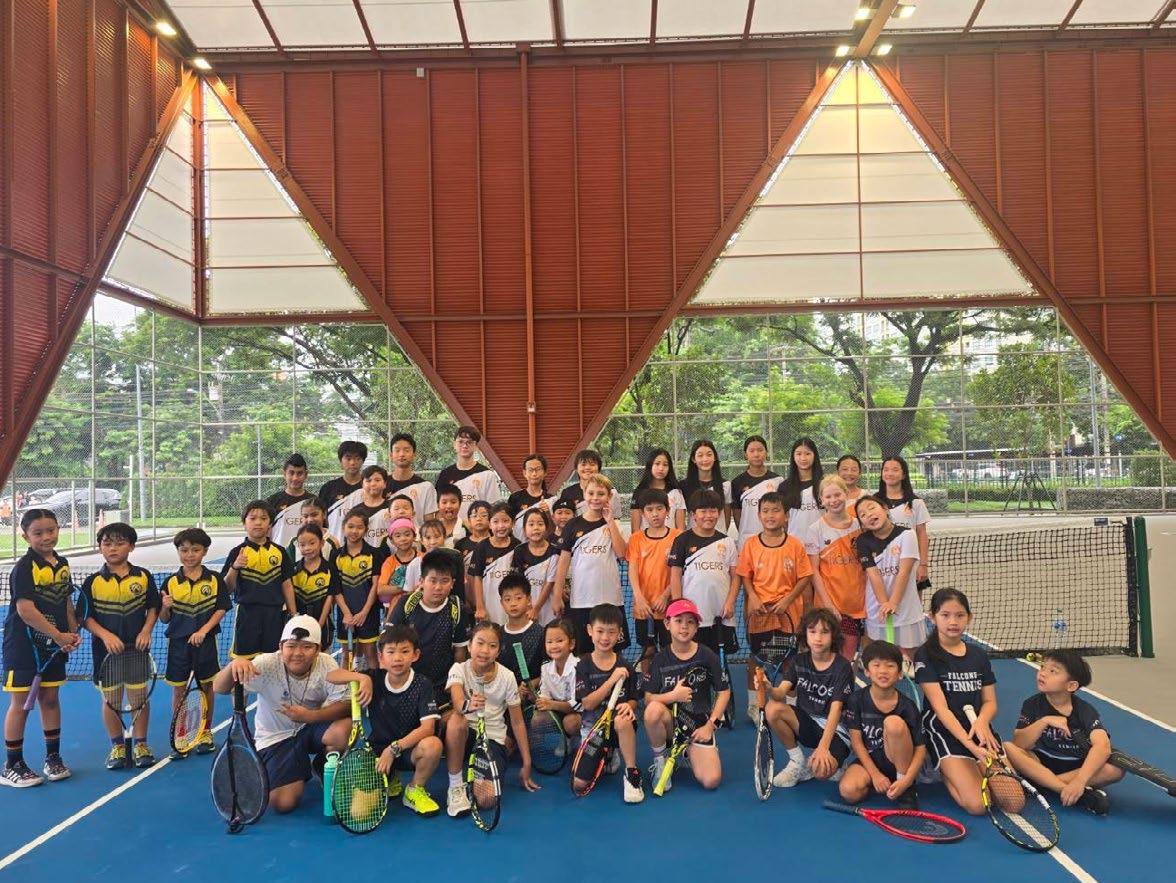
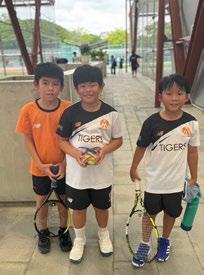
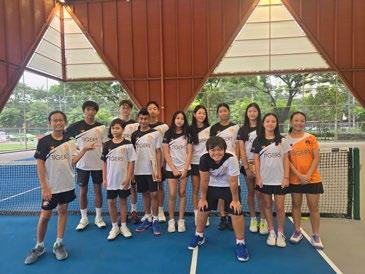
The Tennis academy hosted an orange and green ball event for our Junior Tigers and Junior Cubs teams last Saturday. We invited Harrow, Shrewsbury, St. Andrews and NIST to send teams along for a fun but competitive morning.
As anticipated, our visiting schools were wowed by the new centre and really enjoyed the experience. The students all had a valuable experience against a variety of opponents, and at this early stage of the year, gave the
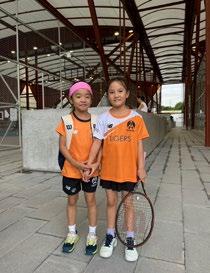
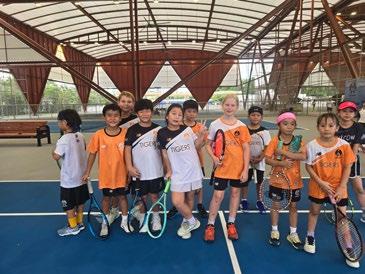
coaching staff a good look at how all the students reacted in a competitive situation, which will help in the coming months when squad and individual lessons are taking place.
It was also fantastic to see so many of the older students giving up their morning to help umpire the matches which was invaluable.
Ana Bolakoso, SEC Co-President
In an age where streaming services like Netflix, Spotify, and YouTube are central to our daily entertainment, it’s easy to forget that our digital habits have environmental impacts. As we binge-watch our favourite series, listen to music, or join in on live streams, we are contributing to a growing carbon footprint tied to the energy-intensive processes that power these digital platforms.
Streaming media relies on data centres that store and process enormous amounts of information. These data centres require immense amounts of electricity to operate, much of which is still generated from fossil fuels. According to a report from the Shift Project, online video streaming alone accounted for over 300 million tons of CO2 emissions in 2018, equivalent to the annual carbon footprint of Spain. As demand for high-definition content increases, this number is expected to rise.
But it’s not just the data centres that contribute to the carbon footprint. The transmission of data from these centres to our devices, whether through the internet or mobile networks, also consumes energy. Every time you stream a video, data is transmitted across vast networks, involving multiple servers and network equipment, all consuming power. Additionally, our personal devices, from smartphones to TVs, require energy to operate and are often left on standby, further adding to the environmental burden. The average carbon footprint per hour of video streaming is approximately 55gCO2e which is equivalent to boiling an electric kettle three times. So how can we be mindful streamers…
Many of us spend a significant amount of time online, whether for educational purposes, entertainment, or social interaction. Here are some steps we can take to reduce the environmental impact of our digital habits:
Streaming in high-definition (HD) or ultra-high-definition (4K) requires more data, which in turn consumes more energy. Consider lowering the video quality to standard definition (SD) when the higher quality isn’t necessary, especially on smaller screens like smartphones.

Downloading content for offline viewing or listening can be more energy-efficient than streaming it multiple times. This is particularly useful for content you plan to revisit, such as study materials or favourite songs. Check with your parents first if you have limited data in your chosen internet package!
3. Limit Background Streaming:
Many of us keep videos or music playing in the background while we study or work, even when we’re not actively watching or listening. Reducing this habit can significantly cut down on unnecessary data use.
4. Optimise Your Devices:
Keep your devices updated, as newer software versions are often more energy-efficient. Additionally, adjust settings like screen brightness and automatic shutdown to conserve power.
5. Support Sustainable Platforms:
Some streaming services are taking steps to reduce their carbon footprint by investing in renewable energy and improving the efficiency of their data centres. Research and support platforms that prioritise sustainability.
6. Reduce Overall Screen Time:
The less time you spend online, the lower your digital carbon footprint. Consider incorporating more offline activities into your routine, such as reading books, engaging in new activities, or spending time with friends and family.
Despite these challenges, data centres are steadily becoming more energy efficient, with ongoing efforts to reduce emissions. However, it’s crucial to reflect on our digital footprint and take steps to minimise it—every action counts towards a more sustainable future

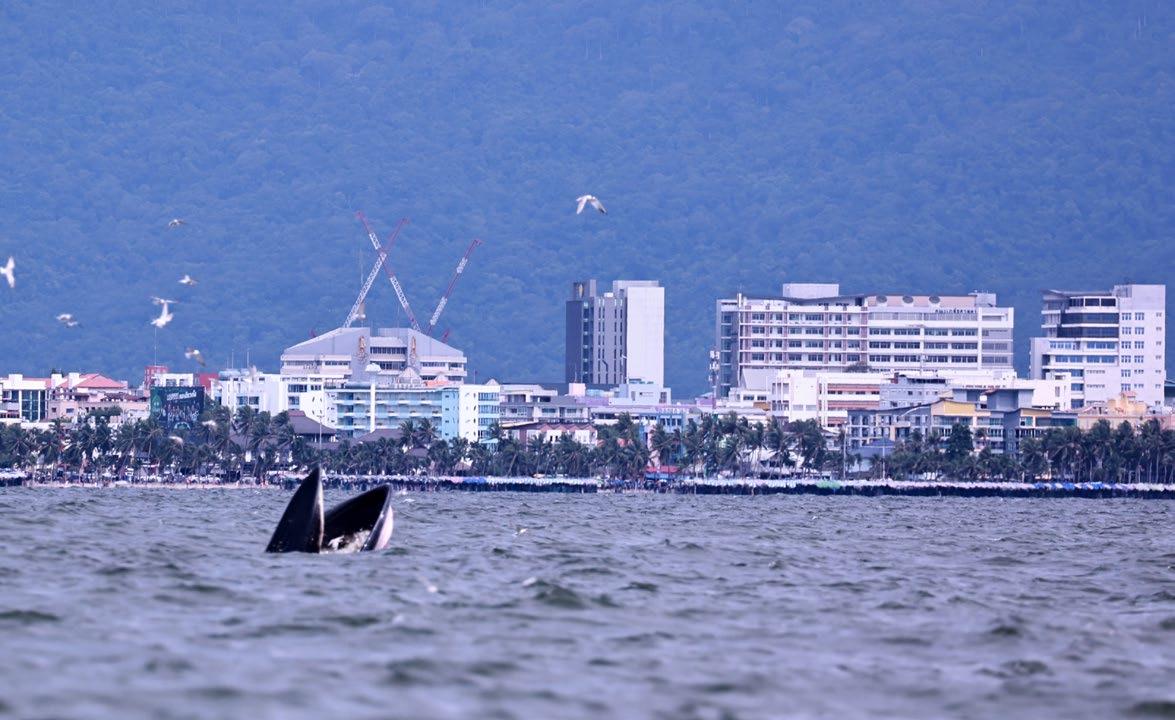
Anyone who has been reading my columns for the last few years knows I do at least one article on the amazing Eden’s Whales that make the Gulf of Siam near Bangkok their home. I take some of our lucky students every year to try to find them and learn about their ecology. In fact, 33 Bangkok Patana students will be joining their ESS class to study the whales next month.
Today’s column will be a bit different. Sure, it highlights our whales but in a way that is fairly unique. This last weekend, I was privileged to have been invited to see one of the most amazing cetacean phenomena I have ever witnessed. The local Eden’s Whales are currently feasting on one of the largest anchovy blooms ever recorded in the upper Gulf of Thailand. That in itself is pretty cool, but what makes it even more unique is that this bloom is happening right off the coast of Bang Saen, Sriracha and Pattaya – the eastern most stretches of the Gulf of Siam. Very close to shore!
The images I have included with this article give an idea of how close I am talking – just a couple to a few hundred meters from the cities themselves. The whales have rarely if ever been seen feeding this far east before. It was only a couple years ago that images of our whales with tall
buildings in the background were accused of being fake and photo-shopped! These last couple weeks however, images of whales with the city in the background are quite doable.
To give you an idea of the size of this year’s anchovy bloom, we travelled in a small speed boat up and down the eastern Gulf of Siam near the shores of Sriracha and Bang Saen most of the day Saturday and according to our fish-finder sonar, we encountered shoals of anchovies stretching nearly 10-20 kms in length with varying densities. Again, this has never been seen before in this part of the gulf.
I would love to recommend folks to get out and see this amazing phenomenon for themselves. Wild Encounter Thailand (link below) is currently taking people out to view the spectacle. I am not sure however how long this will last. Is it a short-term, once in a lifetime event? Or is it a longerterm change that can give reliable sightings such as these into the foreseeable future? Only time will tell.
https://www.facebook.com/wildencounterthailand/?locale=th_TH
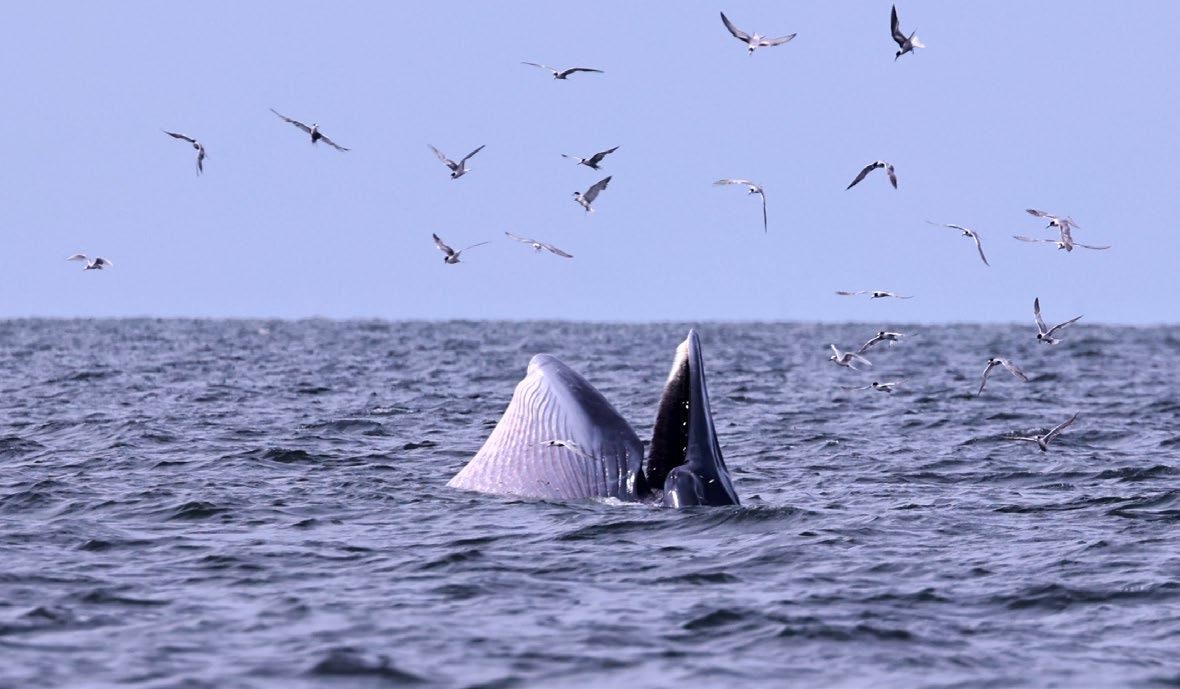


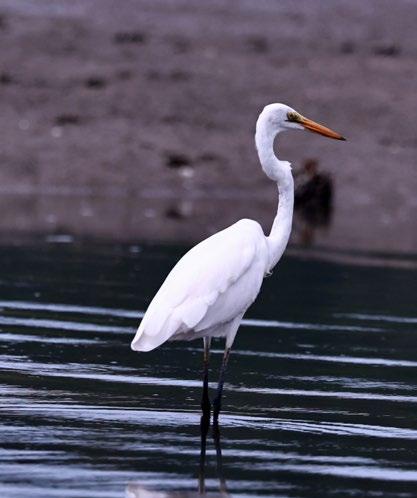


Carol Battram, Primary School Vice Principal: Pastoral
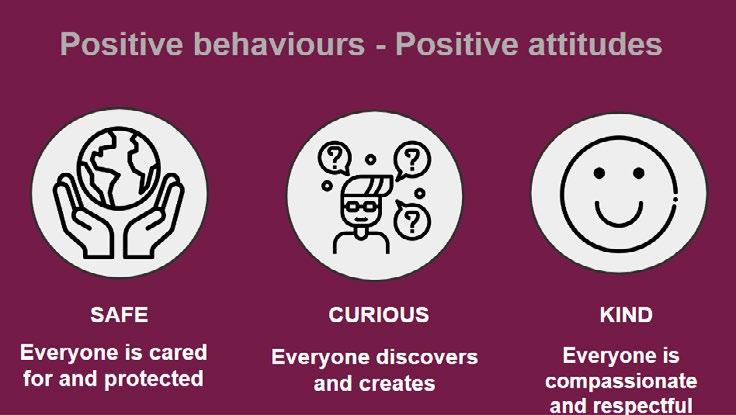
Parents may have seen these new posters around the Primary school. We recently shared the attitudes and behaviours that we want to help every student to learn and develop as they move through our school.
These attitudes and behaviours are grouped under our three key values; Safe, Curious and Kind.
We want these positive words, thoughts and actions to support and strengthen your child’s holistic development as they move through Primary and into young adulthood. Please help us champion these values by referencing our matrix of positive behaviours and attitudes in conversations with your child. The matrix is also available in Thai.
Busatree Wanglee , Parent
Khoon Wanglee 8J, who has been selected to represent Thailand in the U12 category at the prestigious Asian Tennis Competition, will be heading to Kazakhstan for the tournament. This exciting opportunity highlights Khoon’s impressive achievements in tennis, and his supporters
